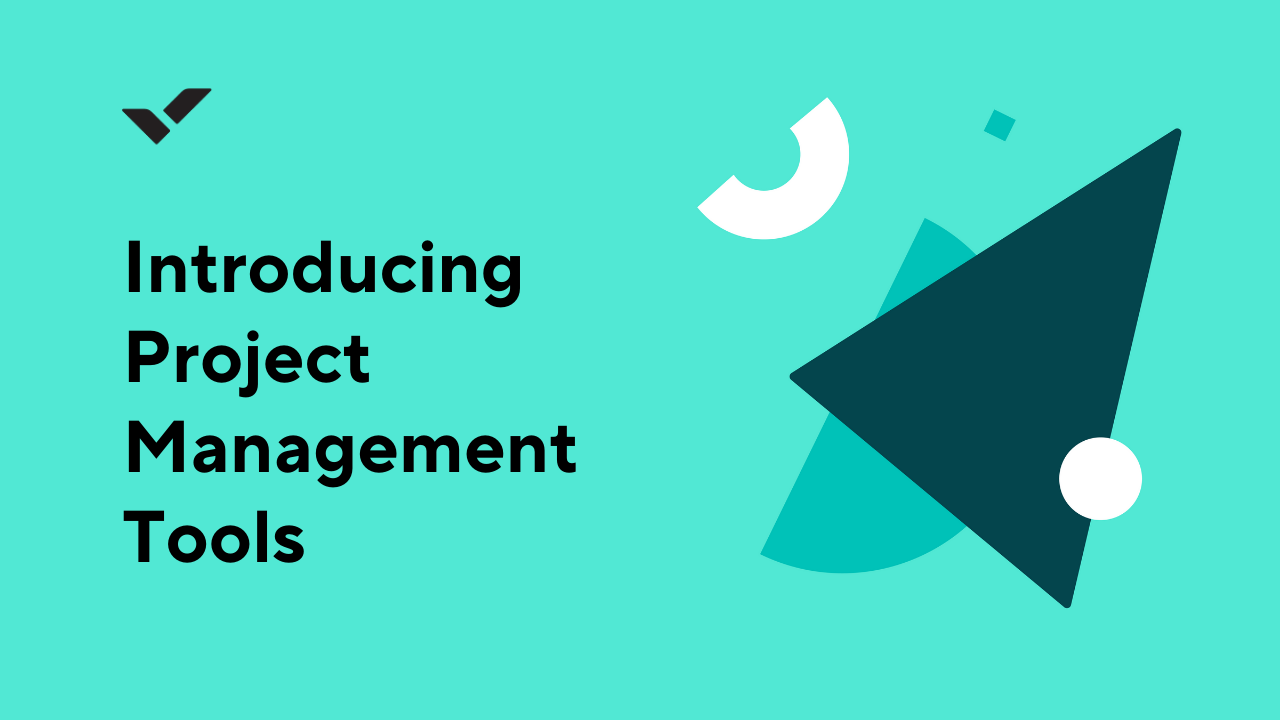Boosting team efficiency can feel like a daunting task. Task management tools are here to help.
Every team needs to stay organized and productive. The right tools can make this happen. With so many options available, it’s tough to know where to start. This guide will help you understand how different task management tools can improve your team’s workflow.
We will explore features, benefits, and why these tools matter. Whether your team is big or small, these tools can make a difference. Ready to boost your team’s efficiency? Let’s dive in and find the best tools for you!

Credit: www.predictiveanalyticstoday.com
Introduction To Task Management Tools
Task management tools play a vital role in today’s fast-paced work environment. They help teams stay organized, meet deadlines, and enhance productivity. These tools offer features like task assignment, progress tracking, and collaboration, making them indispensable for any team.
Purpose And Benefits
The primary purpose of task management tools is to streamline workflow. They allow team members to see their tasks and deadlines clearly. This reduces confusion and ensures everyone is on the same page.
Task management tools also offer several benefits. They improve communication within the team. They help in prioritizing tasks, ensuring the most critical tasks get done first. They also provide a platform for tracking progress, which helps in identifying bottlenecks and finding solutions quickly.
Importance In Team Efficiency
Efficient task management is crucial for team success. It ensures that tasks are completed on time and within budget. Task management tools support this by providing a clear structure. Teams can break down large projects into manageable tasks.
These tools also foster better collaboration. Team members can easily share updates, files, and feedback. This leads to faster decision-making and improved project outcomes. With everyone aligned, the team can work more efficiently and effectively.
Key Features To Look For
Choosing the right task management tool can significantly boost team efficiency. To make an informed choice, focus on key features that enhance collaboration and productivity.
Task Assignment
Effective task assignment is crucial for team coordination. Look for tools that allow easy task allocation to specific team members. Ensure the tool supports setting clear deadlines. This helps everyone know their responsibilities and timelines.
A good task assignment feature often includes priority levels. This helps teams focus on the most important tasks first. Clear task descriptions and attachments also aid understanding and execution.
Progress Tracking
Progress tracking keeps everyone informed about project status. Choose tools that offer real-time updates. Visual aids like Gantt charts or Kanban boards can make tracking easier.
Look for tools that send notifications on task updates. This ensures team members stay aware of changes. Progress tracking features should also include activity logs. These logs provide a history of task changes and updates.
Customizable dashboards can help teams monitor their progress effectively. They offer a quick overview of pending, ongoing, and completed tasks.
Top Task Management Tools
Effective task management tools can boost team efficiency and productivity. Choosing the right tool for your team is crucial. Various options cater to different needs. This guide covers some popular and emerging task management tools. Let’s dive into the top choices available today.
Popular Options
Many teams rely on well-established task management tools. These tools offer a range of features. They help organize, assign, and track tasks. Here are some popular options:
Asana: Asana is a versatile tool. It helps teams manage projects and tasks. It features boards, lists, and timelines. Asana is user-friendly and integrates with many apps.
Trello: Trello uses boards, lists, and cards. It is simple yet powerful. Teams can easily move tasks through stages. Trello also supports collaboration and integrations.
Monday.com: Monday.com is highly customizable. It offers visual boards and automation. Teams can track progress in real-time. The tool also integrates with other apps.
Emerging Solutions
New task management tools are continually emerging. These tools bring fresh features and innovations. They aim to solve unique challenges. Here are some emerging solutions:
ClickUp: ClickUp is an all-in-one platform. It combines task management, docs, and goals. It offers flexibility and customization. ClickUp adapts to various team needs.
Notion: Notion is a versatile workspace. It combines notes, tasks, databases, and calendars. Teams can create customized workflows. Notion is both powerful and flexible.
Hive: Hive is a collaborative tool. It features project management, messaging, and file sharing. Teams can create action cards and automate tasks. Hive helps streamline workflows.
Integrating With Other Software
Integrating task management tools with other software is crucial for boosting team efficiency. It enables seamless workflows and reduces manual work. This guide explores how to integrate with key software to maximize productivity.
Communication Tools
Effective communication is key to team success. Integrating task management tools with communication platforms can streamline interactions. For instance, linking your task management tool with Slack allows team members to receive updates directly in their chat. This keeps everyone informed without switching between apps.
Consider these benefits of integrating with communication tools:
- Real-time notifications
- Easy task assignments
- Centralized discussions
Another popular tool is Microsoft Teams. It offers seamless integration with many task management platforms. This integration ensures that all communications and tasks are in one place, enhancing team collaboration.
Project Management Platforms
Integrating task management tools with project management platforms optimizes project workflows. Tools like Asana and Trello are popular choices. They offer extensive integration capabilities. Connecting your task management system with these platforms can help in:
- Tracking project progress
- Automating task updates
- Centralizing project data
For example, integrating with Trello allows you to sync tasks and boards. This ensures that all team members are aware of their responsibilities. Asana offers similar benefits, with additional features like timeline views and task dependencies.
Here’s a quick comparison of integration features:
| Feature | Trello | Asana |
|---|---|---|
| Task Syncing | Yes | Yes |
| Board Views | Yes | No |
| Timeline Views | No | Yes |
Integrating with project management platforms helps in maintaining a unified workflow. It reduces the chances of missing important updates.
Customizing For Your Team
Customizing task management tools can significantly enhance team efficiency. Every team has unique needs and workflows. Tailoring features and permissions to fit these requirements is crucial. This ensures a smooth and productive workflow.
Tailoring Features
Task management tools offer a variety of features. Not all features suit every team. Identify the features that align with your team’s tasks. Disable unnecessary features to avoid clutter. This helps focus on what’s important.
Teams working on different projects may need specific functionalities. For instance, a marketing team may need social media scheduling. A development team might need bug tracking. Customize the tool to include only relevant features. This makes the tool more intuitive and user-friendly.
User Roles And Permissions
Assigning user roles and permissions is essential. It defines what each team member can access and modify. This ensures data security and task accountability. Leaders can assign tasks and monitor progress without micromanaging.
Different roles have different responsibilities. Admins have full access, while members have limited access. Custom roles can be created based on your team’s structure. This flexibility helps in managing large teams with diverse roles.
Permissions can also be set for specific projects. This ensures that only authorized members access sensitive information. It also helps in maintaining a clear hierarchy within the tool.

Credit: www.aihr.com
Best Practices For Implementation
Implementing task management tools can transform your team’s efficiency. But without proper practices, the benefits might not be fully realized. This section covers the best practices for implementing these tools to ensure your team reaps the full rewards.
Training And Onboarding
Proper training is crucial. Begin with a detailed introduction to the tool. Explain its features clearly. Ensure every team member understands their role. Use hands-on sessions for better understanding. Provide easy-to-follow guides and resources. Address any questions during the training. Consistent onboarding ensures everyone is on the same page. Regularly update training materials.
Continuous Improvement
Don’t stop after the initial training. Regularly review how the tool is being used. Gather feedback from the team. Identify areas needing improvement. Adapt the tool to fit evolving needs. Schedule periodic refresher courses. Keep the team updated with new features. Continuous improvement keeps the tool effective. It also boosts team confidence and efficiency.
Measuring Success
Measuring success in task management is crucial. It helps ensure that your team is on the right track. Knowing what to measure and how to adjust can greatly improve efficiency. Let’s break down the key metrics and the importance of feedback and adjustments.
Key Metrics
Tracking the right metrics is essential. Start with task completion rates. This shows how many tasks are finished on time. It helps identify if deadlines are realistic. Another important metric is the time spent on tasks. This reveals if tasks are taking longer than expected. Monitor the number of tasks in progress. Too many tasks can overwhelm your team. Also, check the number of overdue tasks. This indicates areas that need attention.
Feedback And Adjustments
Collecting feedback is vital. It helps understand what is working and what is not. Use surveys to gather team input. Regular check-ins allow for real-time feedback. Make adjustments based on the feedback. Perhaps a task needs more time. Or a process needs tweaking. Constantly refine your approach. This ensures your team stays efficient. Adapt and evolve with the feedback you receive.

Credit: www.wrike.com
Future Trends In Task Management
The future of task management tools is evolving rapidly. Teams now need efficient solutions that adapt to new work environments and technologies. Let’s explore the key trends shaping the future of task management.
Ai And Automation
Artificial Intelligence (AI) is transforming task management tools. These tools can automate repetitive tasks, predict deadlines, and offer smart suggestions. This reduces the workload and helps teams focus on more important tasks.
Automation streamlines workflows. It integrates with calendars, sends reminders, and tracks progress. This minimizes human error and ensures tasks are completed on time.
Consider these key benefits of AI and automation in task management:
- Improved efficiency: Automates routine tasks.
- Enhanced accuracy: Reduces human error.
- Smart insights: Provides data-driven suggestions.
Remote Work Considerations
Remote work is now more common. Task management tools must adapt to this change. They need features that support remote teams.
Key features for remote work include:
| Feature | Benefit |
|---|---|
| Cloud-based access | Enables work from anywhere |
| Real-time collaboration | Facilitates team communication |
| Time zone support | Manages tasks across different regions |
These features ensure that teams remain productive and connected, no matter where they work.
Frequently Asked Questions
What Are Task Management Tools?
Task management tools help teams organize, prioritize, and track tasks. They improve efficiency and collaboration. These tools often include features like task assignment, deadlines, and progress tracking.
How Do Task Management Tools Boost Efficiency?
Task management tools streamline workflows by centralizing tasks and deadlines. They enhance communication, reduce errors, and ensure timely completion. This boosts overall team productivity.
Which Task Management Tools Are Popular?
Popular task management tools include Trello, Asana, and Monday. com. These tools offer various features to manage tasks efficiently and improve team collaboration.
Can Task Management Tools Improve Remote Work?
Yes, task management tools are essential for remote teams. They provide a centralized platform for communication, task tracking, and collaboration, ensuring seamless workflow.
Conclusion
Effective task management tools can significantly improve your team’s efficiency. These tools streamline workflows, enhance communication, and reduce errors. Select the right tool that meets your team’s specific needs. Test different options and gather feedback from your team. Implement the chosen tool gradually to ensure smooth adoption.
Remember, a well-organized team is a productive team. Start optimizing your task management today for better results. Thank you for reading our guide.




